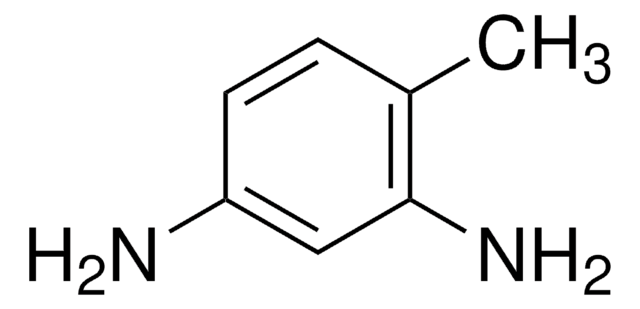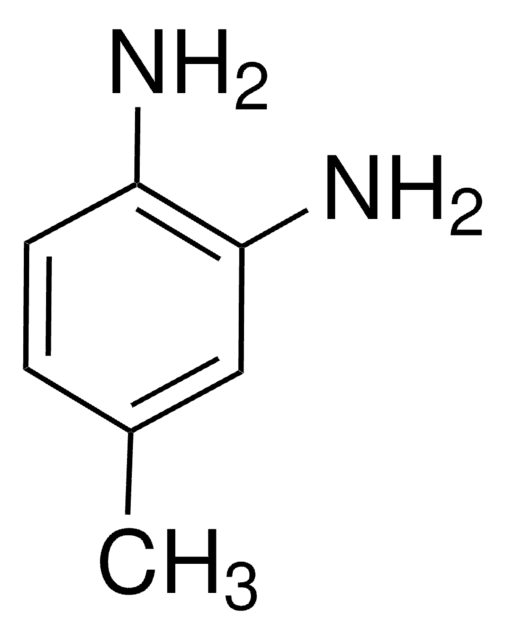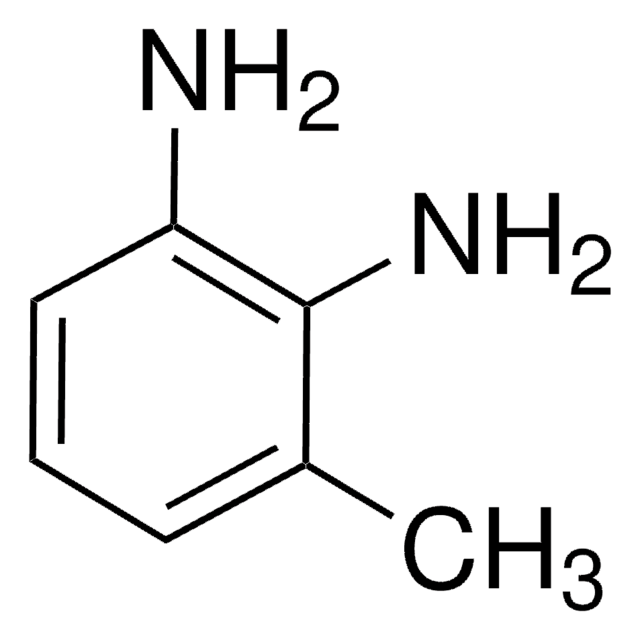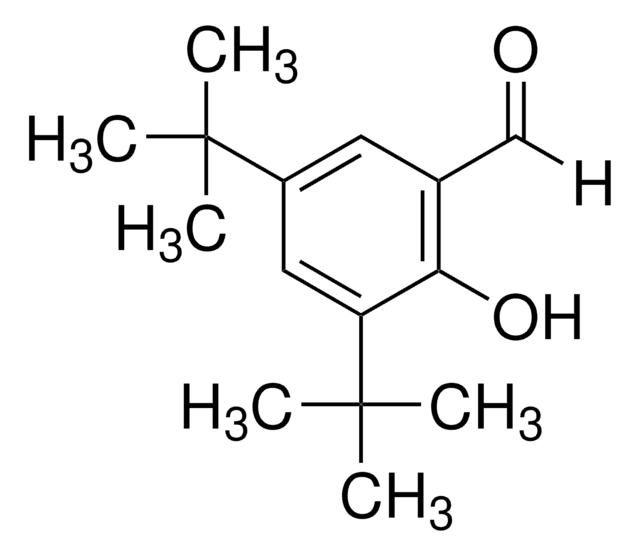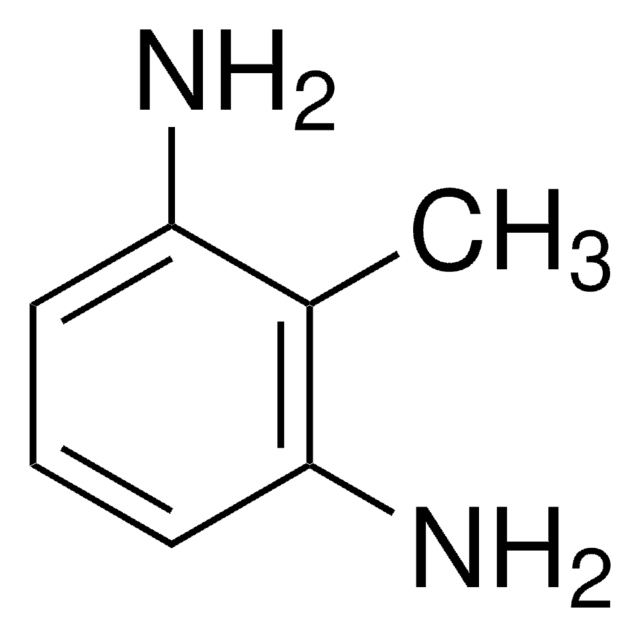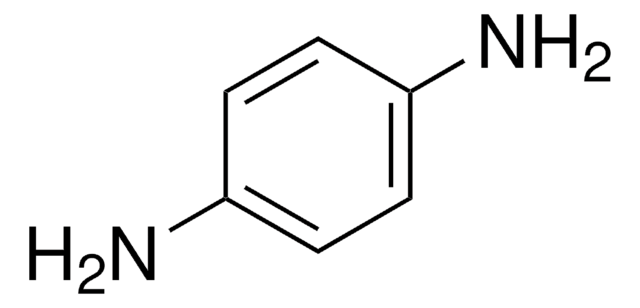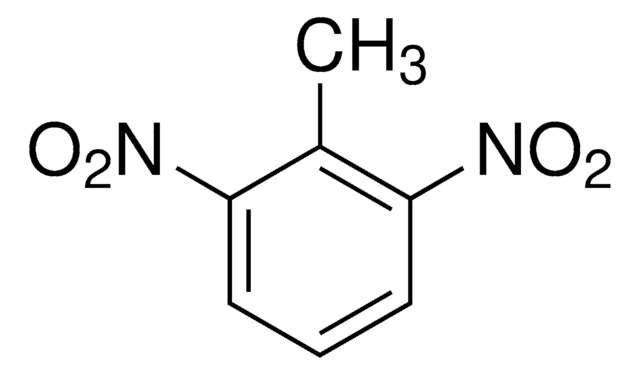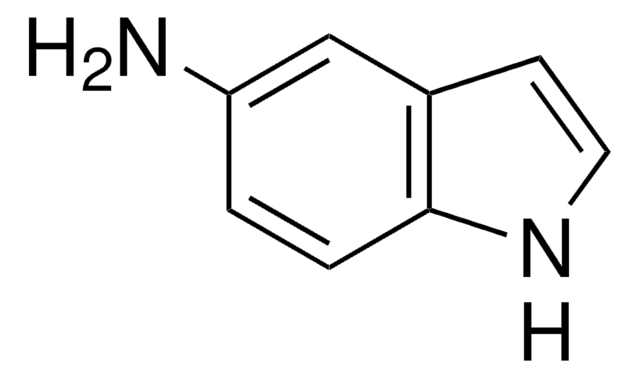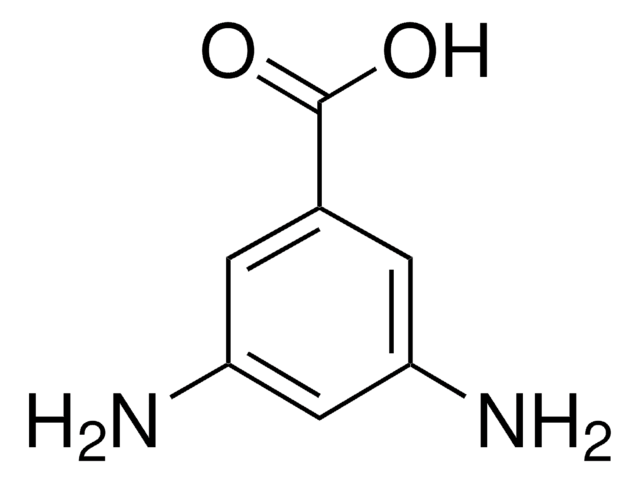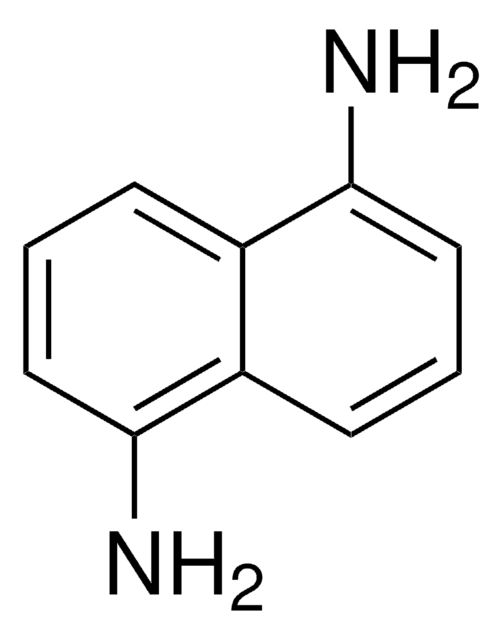148113
2,6-Diaminotoluene
97%
Sinónimos:
2,6-Toluenediamine, 2,6-Tolylenediamine, 2-Methyl-m-phenylenediamine
Iniciar sesiónpara Ver la Fijación de precios por contrato y de la organización
About This Item
Fórmula lineal:
CH3C6H3(NH2)2
Número de CAS:
Peso molecular:
122.17
Beilstein:
2079476
Número CE:
Número MDL:
Código UNSPSC:
12162002
ID de la sustancia en PubChem:
NACRES:
NA.23
Productos recomendados
Nivel de calidad
Ensayo
97%
Formulario
solid
mp
104-106 °C (lit.)
cadena SMILES
Cc1c(N)cccc1N
InChI
1S/C7H10N2/c1-5-6(8)3-2-4-7(5)9/h2-4H,8-9H2,1H3
Clave InChI
RLYCRLGLCUXUPO-UHFFFAOYSA-N
Categorías relacionadas
Descripción general
2,6-Diaminotoluene (2,6-DAT) is an aromaticamine characterized by its two amino groups located at the 2 and 6 positions ona toluene ring. This structure imparts unique properties such as highreactivity and the ability to form hydrogen bonds, making it an importantintermediate in synthesis thermoplastic polyamides. Its solubility in organicsolvents further enhances its applicability in polymer synthesis of compositepolymer materials and drug delivery systems.
Palabra de señalización
Warning
Frases de peligro
Consejos de prudencia
Clasificaciones de peligro
Acute Tox. 4 Dermal - Acute Tox. 4 Oral - Aquatic Chronic 2 - Muta. 2 - Skin Sens. 1
Código de clase de almacenamiento
11 - Combustible Solids
Clase de riesgo para el agua (WGK)
WGK 3
Punto de inflamabilidad (°F)
Not applicable
Punto de inflamabilidad (°C)
Not applicable
Equipo de protección personal
dust mask type N95 (US), Eyeshields, Faceshields, Gloves
Elija entre una de las versiones más recientes:
¿Ya tiene este producto?
Encuentre la documentación para los productos que ha comprado recientemente en la Biblioteca de documentos.
Los clientes también vieron
H Tinnerberg et al.
American Industrial Hygiene Association journal, 58(3), 229-235 (1997-03-01)
Comparative air measurements of toluene diisocyanate (TDI) were performed in a 5.6 m3 standard atmosphere and at a TDI flexible foam plant. Air samples were collected in midget impinger flasks containing 9-(N-methyl-amino-methyl)-anthracene (MAMA) in toluene and on 13-mm glass-fiber filters
Hironao Takasawa et al.
Mutation research, 751(1), 12-18 (2012-11-06)
Detecting genotoxicity in the liver is considered an effective approach for predicting hepatocarcinogenicity, as many genotoxic chemicals in vivo may act as hepatocarcinogens in rodents. Here, a genotoxic rodent hepatocarcinogen, 1,2-dimethylhydrazine dihydrochloride (1,2-DMH), and a genotoxic (Ames positive) noncarcinogen, 2,6-diaminotolunene
P M Wilson et al.
Archives of toxicology, 70(10), 591-598 (1996-01-01)
Using gas chromatography/mass spectrometry for detection of hemoglobin adducts, and 32P-postlabelling for DNA adducts, we examined macromolecular binding in Fischer-344 rats administered 2,4-or 2,6-toluene diamine (TDA). The dose-response and correlative relationship between the two macromolecules were investigated over a range
O Sepai et al.
Toxicology letters, 77(1-3), 371-378 (1995-05-01)
Toluenediamines (TDA) were monitored in blood, urine and redon drainage following implantation of polyurethane (PU)-covered breast prostheses. In the redon drainage TDAs showed an initial steep drop. The levels did not fall below detection limits but formed a plateau, which
B M Miller et al.
Environmental and molecular mutagenesis, 26(3), 240-247 (1995-01-01)
A rapid and simple procedure for the micronucleus test (MNT) in vitro using Chinese hamster ovary (CHO) cells was established in our laboratory. The assay is intended to quickly screen chromosomal aberrations in vitro within the framework of industrial genotoxicity
Nuestro equipo de científicos tiene experiencia en todas las áreas de investigación: Ciencias de la vida, Ciencia de los materiales, Síntesis química, Cromatografía, Analítica y muchas otras.
Póngase en contacto con el Servicio técnico